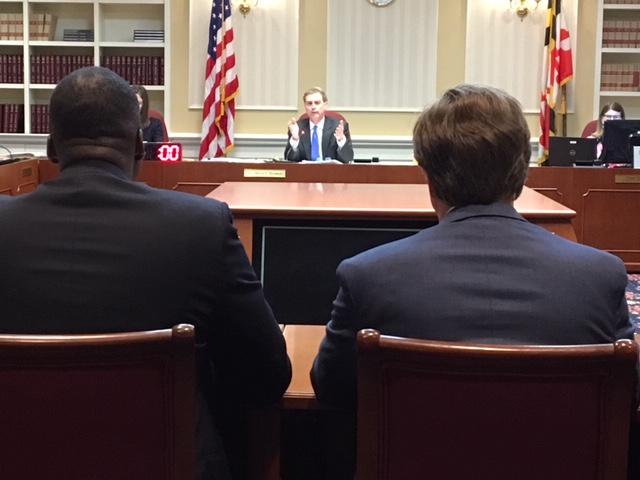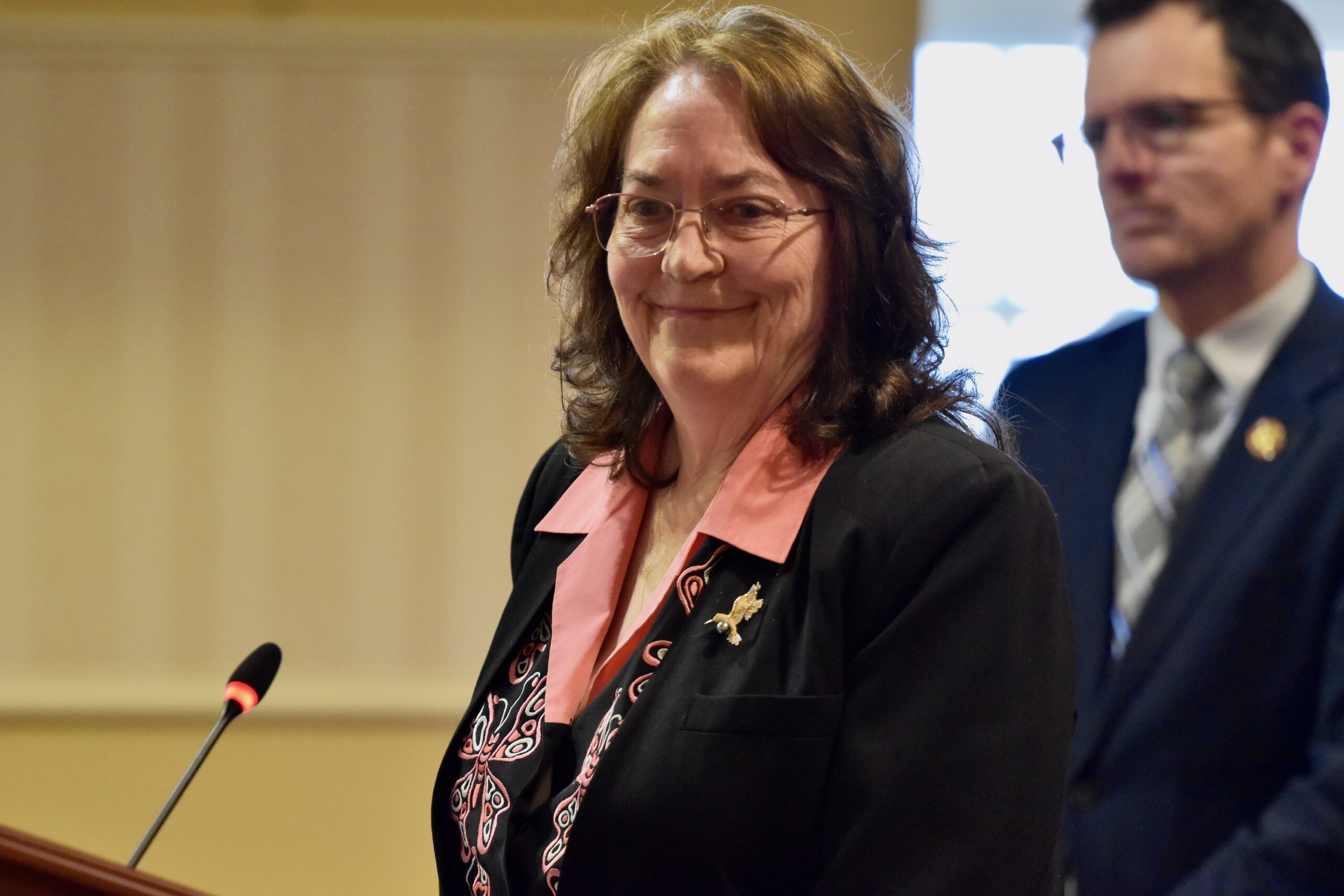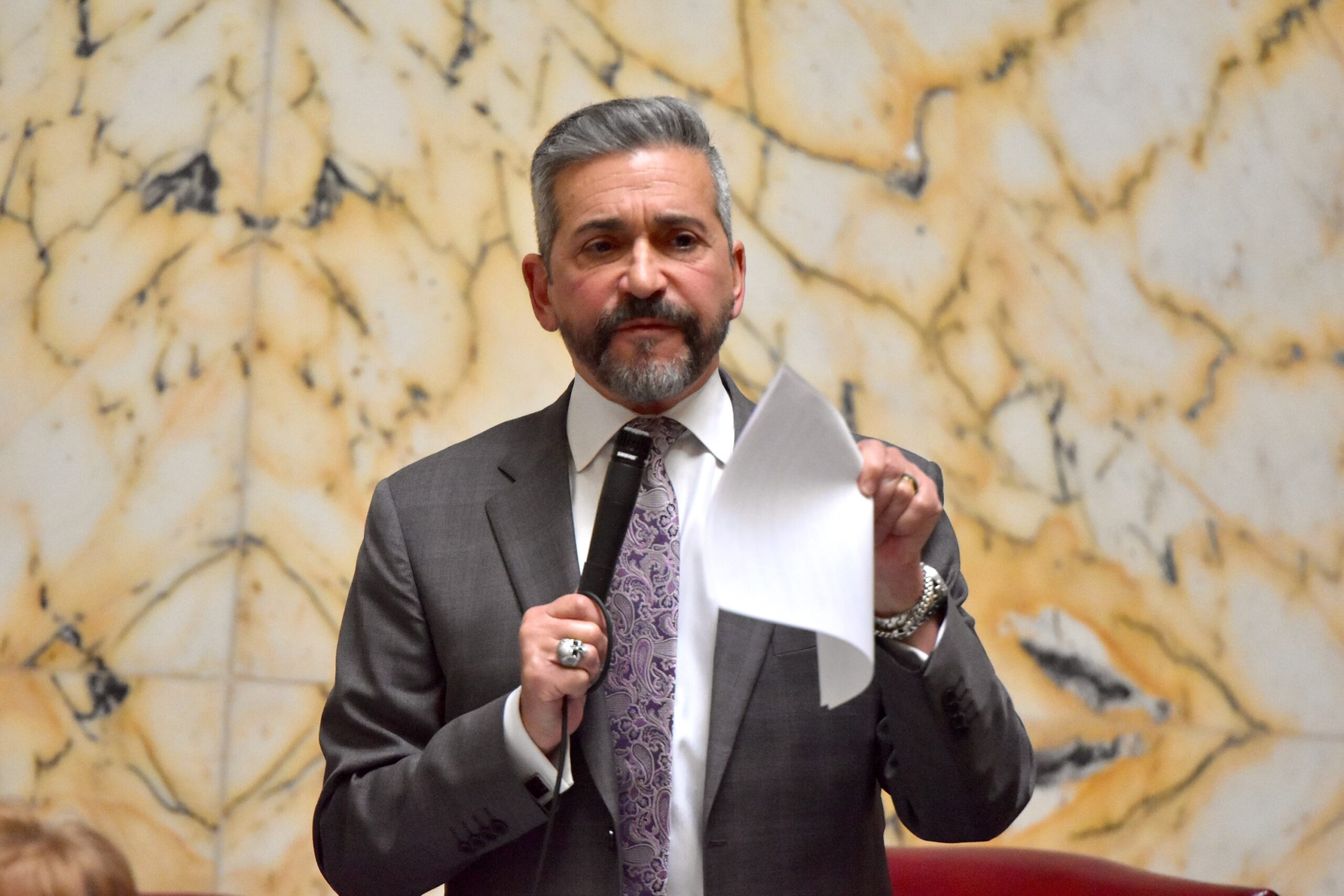‘Everybody’ Loves Prescription Drug Bill, Finance Chair Says. But Is That Enough?

A high-profile measure to rein in the cost of prescription drug medications appears likely to advance this legislative session, despite sharply divergent predictions about what will happen if the bill becomes law.
The mayor of Baltimore and several county executives stood with faith leaders and people suffering from serious illnesses at a news conference, and again at two committee hearings on Wednesday. They testified that for many Marylanders, life-saving medications are increasingly out of reach, forcing difficult decisions about whether to pay the rent, buy food or fill prescriptions.
The measure also received the backing of the Maryland Association of Counties, AARP and the NAACP.
But representatives from the pharmaceutical industry offered sharp criticism of the proposal to create a Prescription Drug Affordability Board. They told the Senate Finance Committee and the House Health and Government Oversight Committee that the measure would lead to drug shortages and stifle future efforts to research and develop life-saving medications.
For the first time, industry lobbyists have offered a counter-proposal to the prescription drug board that has emerged as a top priority of General Assembly Democrats, a tacit acknowledgement that the issue of expensive — often unaffordable — medications is resonating with the public.
The alternative, HB 920, sponsored by House Minority Leader Nicholaus R. Kipke (R-Anne Arundel), and SB 819, sponsored by Sen. Antonio L. Hayes (D-Baltimore City), would require drug manufacturers, health insurers and state agencies to make annual information available about drug prices and would create a mechanism for consumers to be informed about proposed price increases and ways to appeal them.
The legislation that has far more sponsors and has been getting far greater attention is SB 759, sponsored by Baltimore County Democratic Sen. Katherine A. Klausmeier, and HB 768, sponsored by Del. Joseline Pena-Melynk (D-Prince George’s, Anne Arundel).
It would establish a panel with the power to cut prices on drugs that cost more than $30,000 for a course of treatment or those whose prices jump more than $3,000 in a year.
“We’ve got everybody loving the bill,” said Finance Chair Delores G. Kelley (D-Baltimore County). “We clearly understand the need.” Kelley then urged advocates to equip members of her committee with the information they will need to defend the bill on the Senate floor.
Josh White, a lobbyist for Phrma, a trade group, said the measure “will impose price controls, likely lead to drug shortages and will have a detrimental effect on Maryland’s biotech community.”
Brad Stewart of the Maryland Tech Council said the push to establish a first-in-the-nation drug price review board was grounded in “people’s opinions, hopes, dreams and fantasies.”
“About a third of novel cancer medicines are not available” in countries that utilize price-control systems, he testified. “You put patients’ lives at risk by delaying their ability to get access to these drugs.”
Anne Arundel County Executive Steuart Pittman (D) noted that local leaders of both parties now support the bill, due to the increasing strain drug costs are having on their budgets.
“In Anne Arundel County, we spend $45 million a year on prescriptions for our employees and our retirees,” he told reporters. “That’s double what we spend on our public libraries. To me, that’s wrong.
“We’re going to do this, because it’s the right thing to do.”
People battling illnesses told lawmakers they frequently have to deciding whether to “treat, eat or heat” because of the high cost of prescription drugs, a theme echoed at a news conference by several religious leaders.
Rev. David Carl Olson, lead minister at First Unitarian Church in Baltimore, said one of his congregants contemplated entering the hospital just to get her psychotropic medications covered by insurance, a situation he called “ridiculous.”
At the hearing, representatives of drug manufacturers called pharmacy benefit managers the unseen middle-man responsible for steep price hikes. PBMs, they testified, often pocket manufacturer discounts and rebates as profit, rather than passing potential cost-savings on to consumers.
Six Republican delegates are sponsoring the prescription drug affordability panel, and Harford County Executive Barry Glassman (R) has endorsed it, giving the bill bipartisan momentum heading in the legislature’s final month. The measure passed in the House last year but died in the Senate on the final day of the session.
Backers hope to avoid the fate of a 2017 generic drug measure that — like this one — was deemed constitutional by the attorney general’s office, only to fall victim to a court challenge last year.
Last month the Supreme Court refused to consider the state’s appeal.
“You can put all the lipstick you want on a pig, and it’s still a pig,” said Lawrence A. Richardson Jr. of the Maryland Chamber of Commerce. “It’s price control.”
Vincent DeMarco, head of the Maryland Citizens’ Health Initiative, attempted to offer a distinction, telling the committee the bill imposes “an upper payment limit, not a price control.”
“Putting something like this in place, that tries to engineer the basic economics of drug development, sends a strong message to the rest of the country that we don’t get it,” countered Doug Doerfler, CEO of a biotechnology firm.
“There’s a reason why we’re the only state trying to do this.”



 Creative Commons Attribution
Creative Commons Attribution